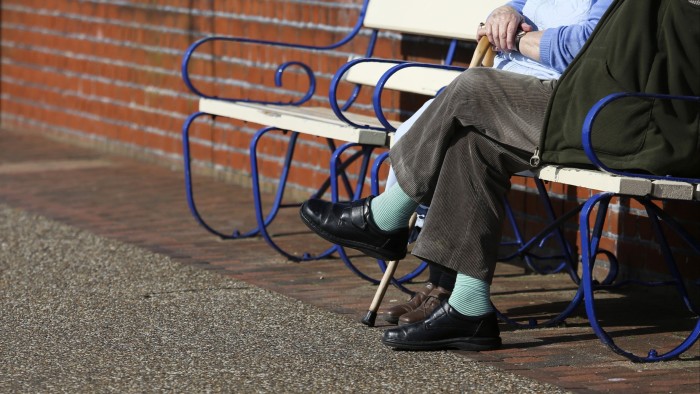Stay informed with free updates
Simply sign up to the Pensions myFT Digest — delivered directly to your inbox.
Three-quarters of UK defined contribution pensions savers say they are not on track to achieve a “reasonable standard of living” in retirement, according to asset manager BlackRock, marking the lowest level of confidence in long-term savings prospects since the survey began in 2017.
The survey of 1,000 savers across the UK found half of those questioned said they could not afford to save enough for retirement, while over a third of DC members said their “biggest concern” was not having enough money to retire “with dignity”.
The findings come with the UK sliding into a retirement crisis. The first generation to save mostly through DC schemes is approaching pension age, many without benefiting from auto-enrolment into pensions early in their careers.
“This sentiment demonstrates the need for an increase in individual pension contributions and broader pensions innovation, such as target date funds or collective defined contribution schemes, both of which pay an income in retirement,” said Gavin Lewis, head of BlackRock UK and Ireland.
The findings add pressure on the government ahead of the launch of the second phase of its pensions review expected before the end of the year, which will be focused on pensions adequacy.
BlackRock’s survey found that 70 per cent of millennials felt unable to plan for the future owing to current financial pressures.
For those approaching retirement, three-quarters said they would value help calculating the income they will need in retirement and only 11 per cent said they had a clear understanding of their income generating options.
In a move to help provide guidance on potential income at retirement, the UK government plans to expand the scope of collective defined contribution schemes, where members participate in a pooled scheme and are offered a target return they can plan their retirements around — but returns are not fixed and companies are not obliged to make up any shortfalls in the scheme’s funding.
So far, only Royal Mail has launched such a programme, but in an interview with the Financial Times this month pensions minister Emma Reynolds said she was “excited” about plans to allow multiple employers to participate in CDC schemes.
In a report published on Wednesday, the Pensions Policy Institute (PPI), a research charity, said inequalities were emerging which could widen the pension adequacy gap across pockets of the population.
It estimated that by 2040 1.7mn pensioner households could be renting privately, up from 500,000 today, yet fewer than one in five will have enough pension savings to afford to rent even a modest home.
The PPI also found that less than 20 per cent of 4.2mn self-employed workers save into a pension, as they have not been able to benefit from auto-enrolment. The government has said it will look at improving pension provision for the self employed as part of its pensions review.
The research group said that gains that had been through pension reforms this century “will stall unless the pension system evolves to reduce savings gaps and reflect the growing challenges of modern society”.


